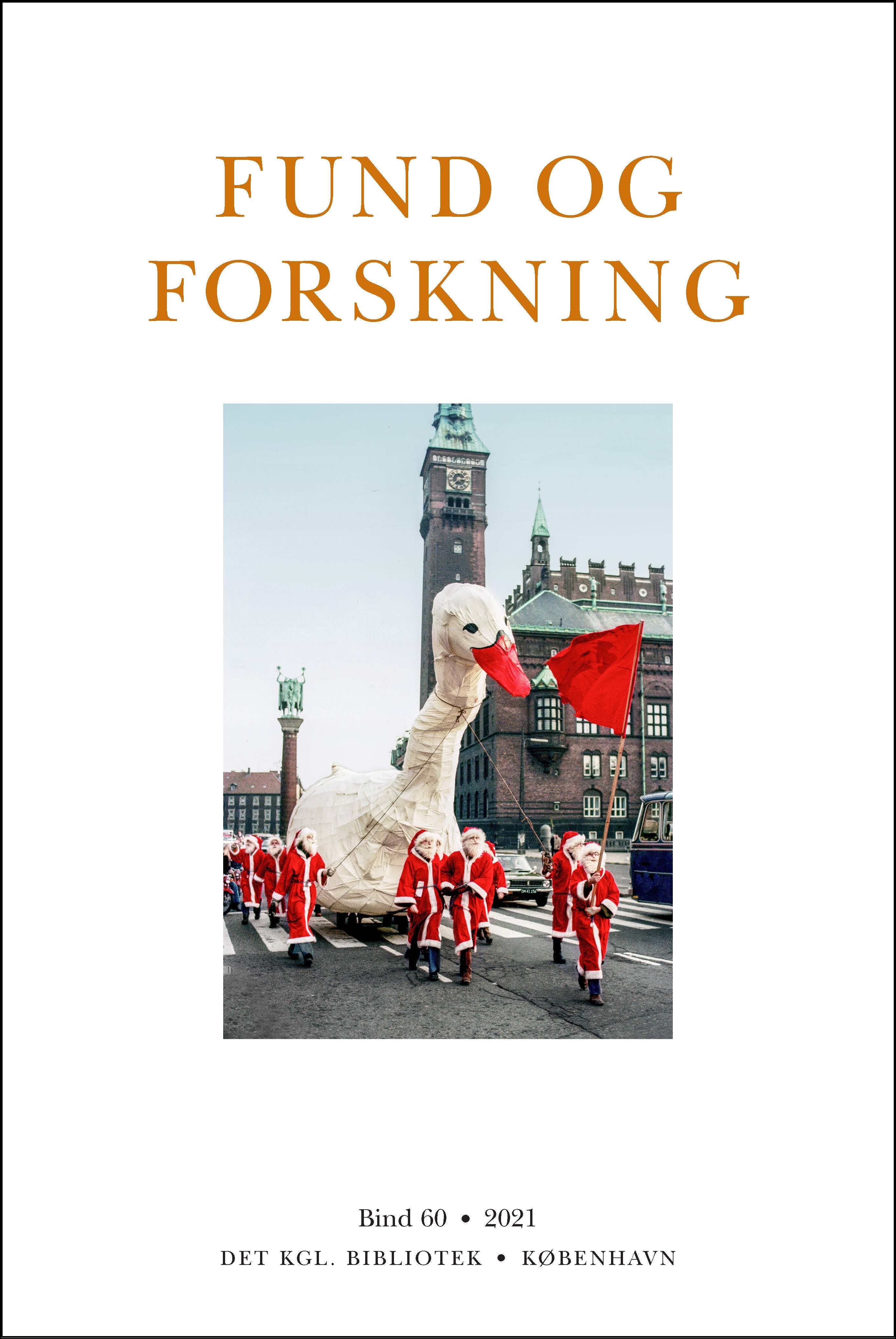"Eine Schreckliche Zeit ist eingebrochen"
H. O. Langes korrespondance med Adolf Erman 1914-1919
DOI:
https://doi.org/10.7146/fof.v60i.130497Resumé
Lars Schreiber Pedersen: “Eine schreckliche Zeit ist eingebrochen”.
H.O. Lange’s correspondence with Adolf Erman 1914‑1919
Taking outset in the comprehensive correspondence between the Egyptologist and
chief librarian at the Royal Library from 1901 to 1924, H.O. Lange (1863‑1943), and his
German mentor and professor in Egyptology at the University of Berlin, Adolf Erman
(1854‑1937), this article focuses on their correspondence during the four years of the
First World War (1914‑18) and in the first year of peace in 1919.
The letters between the long-time colleagues and friends are far from fully preserved,
but they still provide a good insight into their views on the predominant talking point
of the time – the war, especially who they held responsible for much of the misery and
horror of the war. Furthermore, the correspondence provides insight into an international
academia under pressure, in particular Egyptology, where international research
collaboration came to a halt at the outbreak of war, and Germany’s longstanding leading
position within the field was challenged.
For the Egyptologist H.O. Lange the time before the outbreak of war in the summer
of 1914 had been quite satisfying academically. In March, although he had otherwise
often felt rather academically isolated in Copenhagen, he had an opportunity to visit
Erman in Berlin, and at the end of July, Erman presented Lange’s recent scientific work
to the members of the Philosophical-Historical Class at the Royal Prussian Academy
of Sciences.
After the outbreak of war, Lange quickly proclaimed his full loyalty to Erman, and
at the same time he stressed the importance of securing peace and unity within the
scientific community. This was a task that, probably more than anyone else in the field
of Egyptology, the Danish Egyptologist felt the need to take on in the following years,
and he returned to this again and again in his letters to Erman.
Just as for Lange, the outbreak of war in 1914 sparked deep concern for the almost
sixty-year-old Erman, who, in a sort of internal exile, decided to intensify work on his
masterpiece, the dictionary of the Egyptian language, which he had started in 1897.
However, Erman also felt a degree of optimism and confidence in a German victory
on the battlefield that had also seized many of his countrymen. He welcomed
the national enthusiasm triggered by the outbreak of the war. In early August 1914
Germany had declared war on Russia and France, and then invaded neutral Belgium,
but in his opinion Germany was the victim, not the aggressor. Like almost all German
academics Erman shared the perception that the Entente was primarily responsible for
the outbreak of war, and like them he looked forward to settling the score with the
principal opponent: Britain.
Lars Schreiber Pedersen: “Eine schreckliche Zeit ist eingebrochen”.
H.O. Lange’s correspondence with Adolf Erman 1914‑1919
Taking outset in the comprehensive correspondence between the Egyptologist and
chief librarian at the Royal Library from 1901 to 1924, H.O. Lange (1863‑1943), and his
German mentor and professor in Egyptology at the University of Berlin, Adolf Erman
(1854‑1937), this article focuses on their correspondence during the four years of the
First World War (1914‑18) and in the first year of peace in 1919.
The letters between the long-time colleagues and friends are far from fully preserved,
but they still provide a good insight into their views on the predominant talking point
of the time – the war, especially who they held responsible for much of the misery and
horror of the war. Furthermore, the correspondence provides insight into an international
academia under pressure, in particular Egyptology, where international research
collaboration came to a halt at the outbreak of war, and Germany’s longstanding leading
position within the field was challenged.
For the Egyptologist H.O. Lange the time before the outbreak of war in the summer
of 1914 had been quite satisfying academically. In March, although he had otherwise
often felt rather academically isolated in Copenhagen, he had an opportunity to visit
Erman in Berlin, and at the end of July, Erman presented Lange’s recent scientific work
to the members of the Philosophical-Historical Class at the Royal Prussian Academy
of Sciences.
After the outbreak of war, Lange quickly proclaimed his full loyalty to Erman, and
at the same time he stressed the importance of securing peace and unity within the
scientific community. This was a task that, probably more than anyone else in the field
of Egyptology, the Danish Egyptologist felt the need to take on in the following years,
and he returned to this again and again in his letters to Erman.
Just as for Lange, the outbreak of war in 1914 sparked deep concern for the almost
sixty-year-old Erman, who, in a sort of internal exile, decided to intensify work on his
masterpiece, the dictionary of the Egyptian language, which he had started in 1897.
However, Erman also felt a degree of optimism and confidence in a German victory
on the battlefield that had also seized many of his countrymen. He welcomed
the national enthusiasm triggered by the outbreak of the war. In early August 1914
Germany had declared war on Russia and France, and then invaded neutral Belgium,
but in his opinion Germany was the victim, not the aggressor. Like almost all German
academics Erman shared the perception that the Entente was primarily responsible for
the outbreak of war, and like them he looked forward to settling the score with the
principal opponent: Britain.


